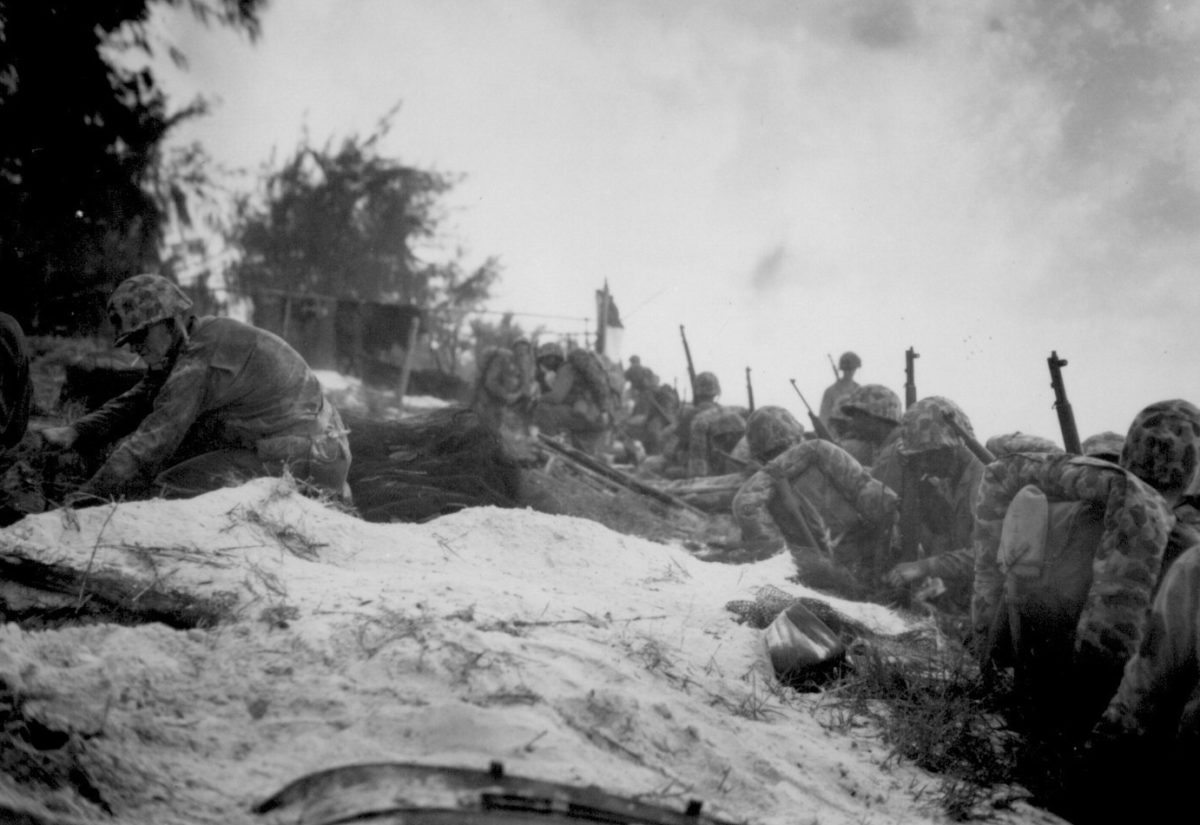As the U.S. Marine Corps fought Japanese troops for Saipan, one group of Marines there was battling on a different level. With pride and a touch of defiance, they called themselves the Montford Point Marines.
If you were a Marine during World War II and you were African American, you trained at Montford Point, the segregated boot camp for men of color. Located alongside Marine Barracks at New River, North Carolina, Montford Point Camp opened in August 1942. Occupying barely five-and-a-half acres of swamp and flooded forest, the facility was the product of Marine Commandant Thomas Holcomb’s reluctant agreement to accept “colored male citizens of the United States between the ages of 17 and 29.” Acting under direct orders from the president and the secretary of the navy, the Marine Corps was the last of the armed services to accept black recruits.
Of nearly 20,000 African Americans in the Marines who trained at Montford Point and served in the war, 75 percent had been to college or were in college when they enlisted, and more than 12,000 went overseas, but none saw combat—until Saipan. There, as elsewhere, black Marines staffed depot and ammunition companies. They transported weapons and munitions, medical supplies, and food and water from ship to shore, 6,000 tons per day—the equivalent of the contents of one liberty ship every 24 hours. Loaders toiled in punishing heat among falling shells and the hammering of Nambu machine guns, but didn’t see action until casualties cut deeply into Lieutenant General Holland Smith’s fighting force. With no reserves left and nowhere else to turn, Smith sent armed Montford Point Marines to the front. The move stunned white Marines until they saw that a man’s color didn’t matter when he stood his ground and fought.
One of those men was Kenneth Tibbs, an orderly to the 20th Depot Battalion commander. Tibbs was killed by an artillery round soon after landing on Saipan, the first African American Marine to die in the war. Kenneth Rollock, from Harlem, New York, joined despite what he knew of Marine culture.
“In the Navy, all the Blacks were either cooks, busboys, or servants, or something of that nature,” he said. “If I was going to fight for this country, I wasn’t going to fight by cooking.”
Rollock got his chance to fight when the 3rd Ammunition Company filled a gap in the lines.
“We got caught in the early part of Saipan in the Japanese counterattack,” he said. “About a quarter mile from the beach, they came out screaming, and we just opened up. Anything moving we shot at.”
Rollock said later he would never forget the sound and sight of the enemy force closing on him and his comrades.
After the battle, Marine commanders praised Rollock and the other African American Marines on Saipan for their heroism and hard work. In June 2012, the Montford Pointers were awarded the Congressional Gold Medal for their World War II service.





